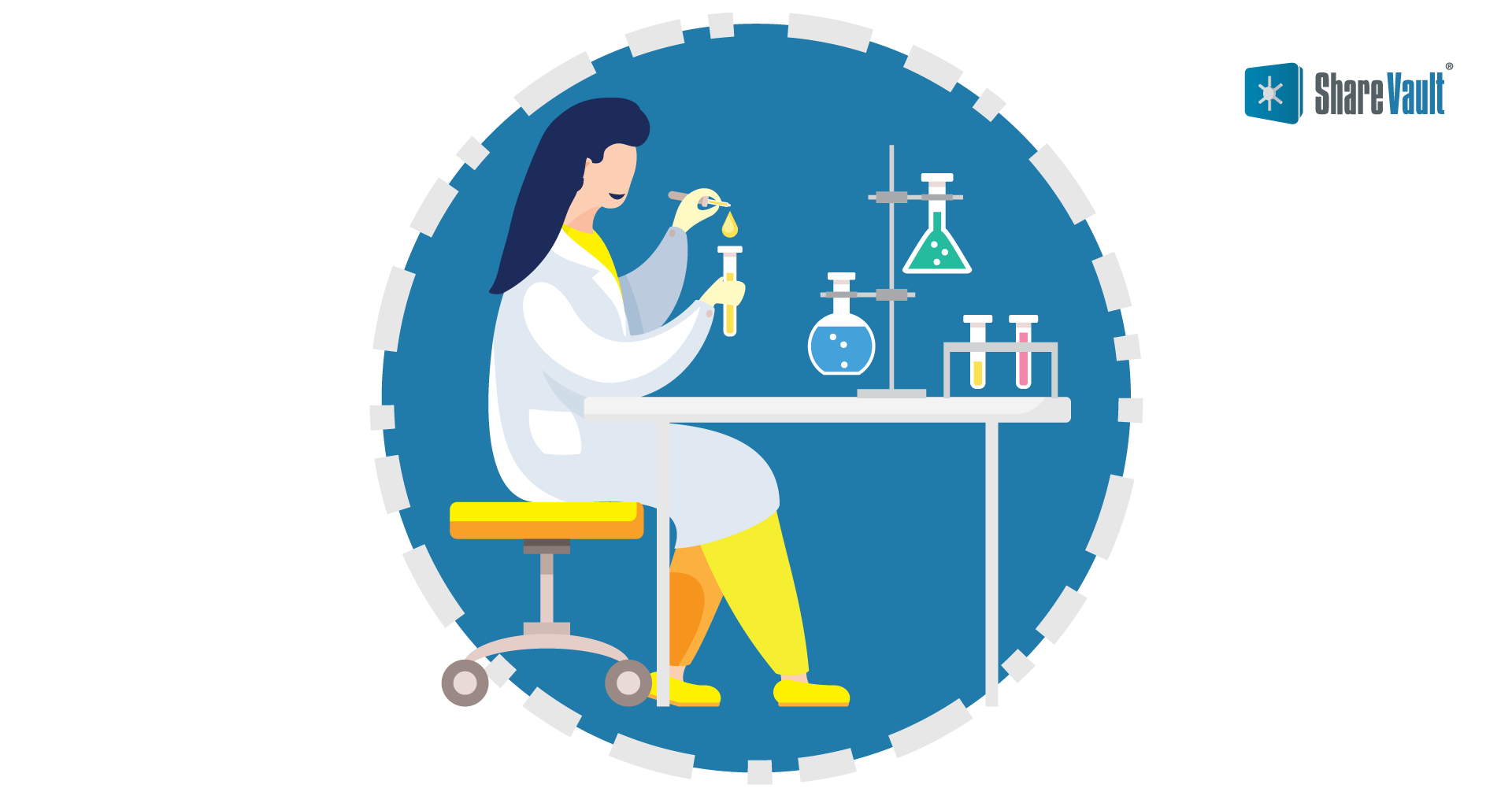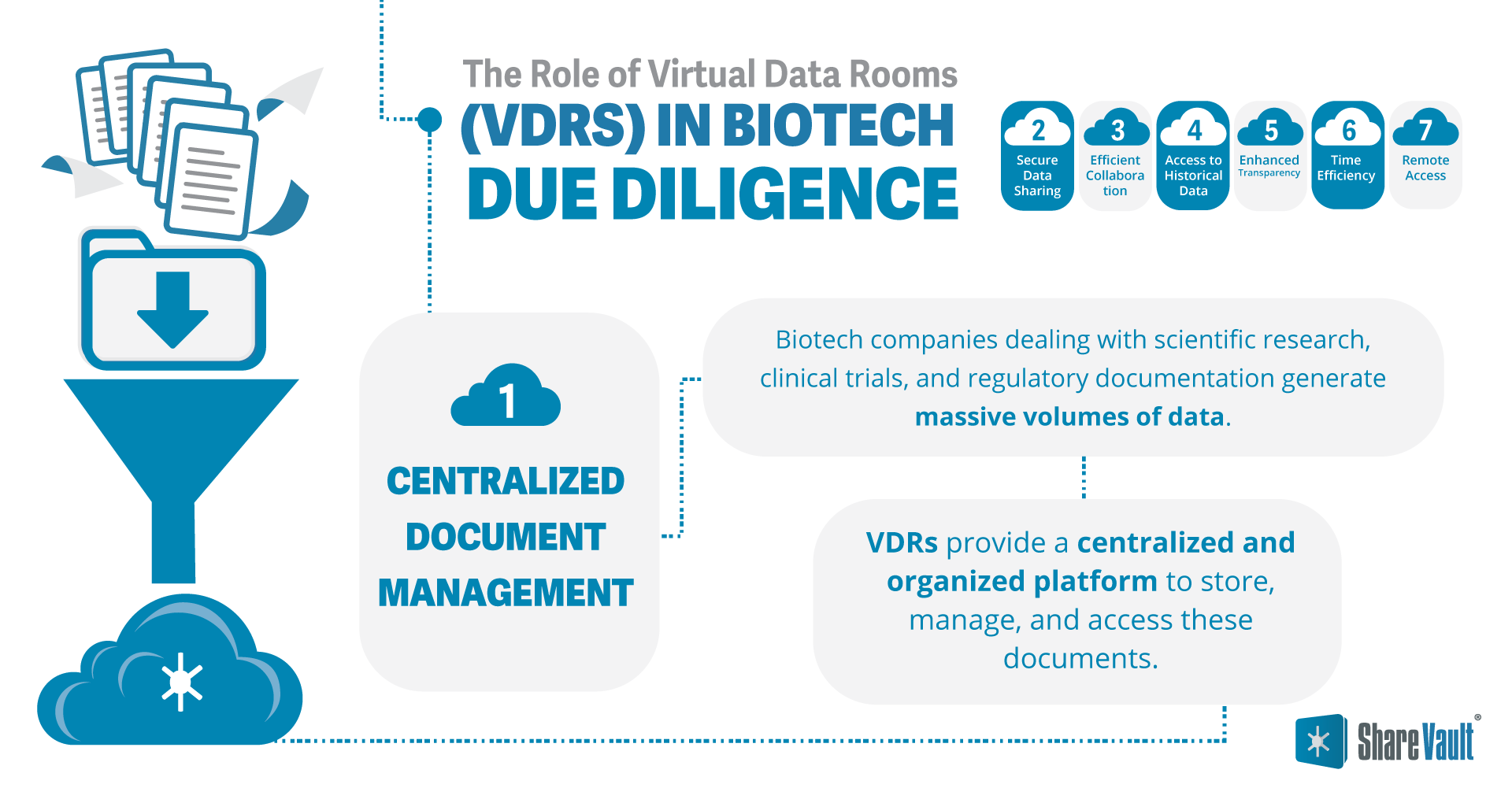In the world of venture capital funding, one sector that has consistently shown promise and growth is biotechnology. Biotech startups are known for their groundbreaking innovations and potential to revolutionize healthcare and other industries.
However, investing in biotech companies can be a risky endeavor due to the complexity and uncertainty of the science involved. This is where due diligence plays a crucial role, and Virtual Data Rooms (VDRs) have emerged as invaluable tools in facilitating this process.
What is Due Diligence in Biotech Venture Capital Funding?
Due diligence is a comprehensive investigation and analysis of a potential investment opportunity that a venture capital firm carries out before committing funds. In the context of biotech startups, this process is particularly rigorous and demanding.
Biotech companies often deal with cutting-edge research, intellectual property, regulatory challenges, and high development costs. Evaluating the scientific, financial, and legal aspects of a biotech firm requires careful examination of a vast amount of data and documentation.

The Role of Virtual Data Rooms (VDRs) in Biotech Due Diligence
Virtual Data Rooms are secure online repositories where companies can store and share confidential information with potential investors, partners, or acquirers. For biotech startups seeking venture capital funding, VDRs have emerged as a game-changer, streamlining the due diligence process and ensuring the efficient exchange of critical information. Here are the key ways VDRs facilitate biotech due diligence:
1. Centralized Document Management: Biotech companies dealing with scientific research, clinical trials, and regulatory documentation generate massive volumes of data. VDRs provide a centralized and organized platform to store, manage, and access these documents. Investors can access all the necessary information in one place, saving time and effort.

2. Secure Data Sharing: Biotech startups handle sensitive and proprietary information, making data security a paramount concern. VDRs employ advanced security measures, such as encryption, access controls, and watermarking, to protect documents from unauthorized access and leaks. This reassures investors that their due diligence process is carried out in a secure environment.
3. Efficient Collaboration: Due diligence in biotech funding often involves multiple parties, including investors, legal advisors, scientific experts, and business analysts. VDRs enable seamless collaboration among these stakeholders, allowing them to communicate, share insights, and collectively assess the investment opportunity in real-time.
4. Access to Historical Data: Biotech startups may have years of historical data related to their research, development, and intellectual property. VDRs ensure that investors can access and review this historical data, providing crucial context for their investment decisions.
5. Enhanced Transparency: Transparency is a vital aspect of any due diligence process. VDRs allow biotech companies to provide potential investors with access to the information they need, promoting transparency and building trust between the two parties.

6. Time Efficiency: Biotech due diligence is a time-sensitive process, and traditional methods of document sharing and physical data rooms can be slow and cumbersome. VDRs accelerate the due diligence timeline, allowing investors to make timely investment decisions.

7. Remote Access: In the globalized world of venture capital, investors and startups may be located in different parts of the world. VDRs facilitate remote access to documents, eliminating geographical barriers and enabling investors from around the globe to participate in the due diligence process.
Conclusion
Venture capital funding in the biotech industry requires extensive due diligence to assess the risks and potential of an investment opportunity. Virtual Data Rooms have revolutionized this process, providing a secure and efficient platform for sharing critical information.
By centralizing document management, ensuring data security, promoting collaboration, and streamlining access to historical data, VDRs have become indispensable tools for venture capital firms evaluating biotech startups. As technology continues to evolve, we can expect VDRs to play an even more significant role in the due diligence process, further empowering investors and fostering innovation in the biotech sector.
